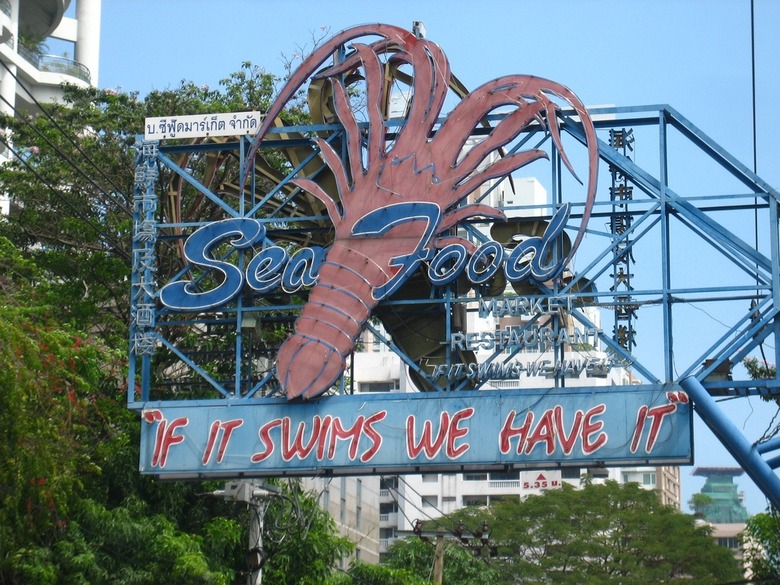Thai Ministry Closes 12 Illegal Seafood Factories In Effort To Clean Up Corrupt Fishing Industry
Thailand — the country at the center of the poorly regulated, slave labor-dependent seafood industry that provides cheap seafood and cat food for global markets, including several major American retailers — has closed 12 illegal seafood processing factories in a bid to clean up its fishing practices.
The United States is Thailand's top consumer of seafood, largely because of the supply chains of pet food brands like Fancy Feast and Meow Mix. Cheap Thai fish is also used in the U.S. to feed livestock.
The Thai government is also facing pressure from the European Union to put an end to illegal and unregulated fishing, or else face a costly seafood import ban.
"Since last month, the industry ministry has closed 12 seafood processing factories that did not have permission to operate," said Thailand's deputy secretary of the industry ministry, Sukda Punkla. "This is part of our attempt to clean up our fishing industry."
The ministry is one of several of Thailand's agencies working within the ad hoc Command Center to Combat Illegal Fishing (CCCIF), an organization formed to put an end to illegal fishing and meet international standards of conduct.
The EU, which issued a warning to Thailand last April, is scheduled to conduct another assessment of the country's lucrative but troubled seafood practices.
In 2015, a yearlong investigation from the Associated Press found that hundreds of Burmese fishermen were being held captive on a small island village, where they were forced to spend up to 22 hours a day catching seafood to be exported from Thailand, for little or no pay. At one point, investigators found eight men locked in a "company cage."
